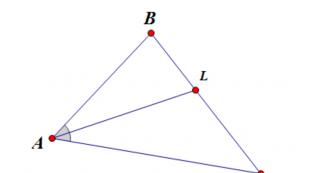Pushkin. “To a Poet Friend” A. Pushkin Parable of Frogs
A company of frogs frolicked among the trees at the edge of the forest. Everything was fine and fun until two frogs accidentally fell into a deep ditch. More likely, it was not even a ditch, but a hole with almost vertical edges and a depth that left practically no chance of salvation for the fallen.
- That's it, friends, don't waste your energy. Accept your fate and say goodbye
A company of frogs frolicked among the trees at the edge of the forest. Everything was fine and fun until two frogs accidentally fell into a deep ditch. More likely, it was not even a ditch, but a hole with almost vertical edges and a depth that left practically no chance of salvation for the fallen.
Having approached the edge of the pit, which seemed to them a real abyss, the remaining frogs shouted to their unfortunate comrades:
- That's it, friends, don't waste your energy. Accept your fate and say goodbye forever!
Never listen to people who are trying to convey to you their pessimism and negative mood, they take away your most cherished dreams and desires. Don't forget the power of words. Everything you hear or read affects your behavior! Always be positive. And, besides, be DEAF when they tell you that your dreams are impossible! Always think: I will do it!
“To a Poet Friend” Alexander Pushkin
Arist! and you are in the crowd of the servants of Parnassus!
You want to ride the stubborn Pegasus;
You hurry along dangerous paths for laurels,
And with strict criticism you boldly enter into battle!Arist, believe me, leave the pen and ink,
Forget streams, forests, sad graves,
Don’t burn with love in cold songs;
To avoid falling off the mountain, quickly go down!
There are and will be enough poets without you;
They will be published and the whole world will forget.
Perhaps now, moving away from the noise
And unite with the stupid muse forever,
Under the shadow of the peaceful Minervina aegis
The other father of the second “Tilemachida” is hidden.
Fearing the fate of senseless singers,
The sheer volume of verses that are killing us!
The descendants of the later tribute to the poets are fair;
There are laurels on Pinda, but there are also nettles.
Fear disgrace! - What if Apollo,
Having heard that you also climbed Helikon,
Shaking his curly head with contempt,
Will your genius reward you with a saving vine?But what? you frown and are ready to answer;
“Perhaps,” you will tell me, “don’t waste unnecessary words;
When I decide on something, I don’t back down,
And know, my lot has fallen, I choose the lyre.
Let the whole world judge me as it wishes,
Be angry, shout, swear, but I’m still a poet.”Arist is not the poet who knows how to weave rhymes
And, squeezing his feathers, he does not spare paper.
Good poetry is not so easy to write,
How Wittgenstein defeated the French.
Meanwhile, Dmitriev, Derzhavin, Lomonosov.
Immortal singers, and honor and glory of the Russians,
They nourish a sound mind and teach us together,
How many books perish as soon as they are born!
Loud creations by Rifmatova, Grafova
With heavy Bibrus they rot at Glazunov's;
No one will remember them, no one will read nonsense,
And Phoebus’ curse is stamped on them.Let us suppose that, having happily climbed the Pindus,
You can rightly call yourself a poet:
Everyone will be happy to read you then.
But do you remember that the river is already flowing towards you?
For being a poet, untold riches,
What are you already taking at the mercy of the state,
You bury chervonets in iron chests
And lying on your side, do you eat and sleep peacefully?
Not so, dear friend, writers are rich;
Fate has not given them even marble chambers,
The chests are not filled with pure gold:
The shack is underground, the attics are high -
Their palaces are magnificent, their halls are magnificent.
Poets are praised by everyone, only magazines feed them;
The wheel of Fortune rolls past them;
Rousseau was born naked and steps naked into the tomb;
Camões shares his bed with the beggars;
The fire in the attic dies unknown,
He was consigned to the grave by alien hands:
Their life is a series of sorrows, their thundering glory is a dream.You seem to be thinking a little now.
“Well,” you say, “judging everyone so harshly,
Going through everything like a new Juvenal,
You talked to me about poetry;
And he himself, having quarreled with the Parnassian sisters,
Should I come here to preach in verse?
What happened to you? Are you sane or not?
Arist, without further ado, here is my answer to you:In the village, I remember, with simple laymen,
An elderly priest with gray curls,
Lived in peace with neighbors, in honor and contentment
And he has long been known as everyone’s first sage.
One day, having drained the bottles and glasses,
From the wedding, in the evening, he walked a little drunk;
Men came towards him.
“Listen, father,” said the simpletons, “
Instruct us sinners - you forbid drinking
You always command everyone to be sober,
And we believe you: what about today..."
“Listen,” said the priest to the men, “
As I teach you in church, so do it,
Live well, but don’t imitate me.”And I had to answer the same thing;
I don't want to justify myself at all:
Happy is the one who does not feel the desire for poetry,
Spends a quiet century without grief, without care,
Magazines are not burdened with their odes,
And he doesn’t sit on impromptu ideas for a week!
He does not like to walk along the heights of Parnassus,
Does not seek pure muses, nor ardent Pegasus,
Ramakov, with a pen in his hand, is not afraid of him;
He is calm and cheerful. Arist, he doesn’t drink.But I can't stop talking - I'm afraid I'll bore you
And torment you with a satirical pen.
Now, dear friend, I have given you some advice.
Will you leave the pipe, will you remain silent or not?..
Think about everything and choose any:
To be nice is good, to be calm is twice as good.
Analysis of Pushkin’s poem “To a Poet Friend”
In July 1814, Pushkin made his debut in print. The fifteen-year-old poet, who chose the pseudonym Alexander N.k.sh.p., published the work “To a Poet Friend” in the Moscow magazine “Bulletin of Europe”. Its addressee is Wilhelm Karlovich Kuchelbecker, a friend and classmate of Pushkin at the Tsarskoye Selo Lyceum. He became interested in poetry early on. He began publishing a little later than Alexander Sergeevich - in 1815. For his debut public appearances, Wilhelm Karlovich chose the magazines “Son of the Fatherland” and “Amphion”.
Turning to Küchelbecker, Pushkin in the text under consideration discusses the profession of a poet. The lyrical hero of the poem asks his interlocutor, who appears under the name Arist, to give up trying to end up on Helicon - according to ancient Greek mythology, this mountain acted as the abode of the muses. There are two key reasons for this. The first is that not every person who knows how to rhyme can be considered a real poet (“fear disgrace”). Secondly, the wheel of Fortune often rolls past poets. It is no coincidence that the topic of professional self-determination appears in Alexander Sergeevich. The question of a career was one of the most important for lyceum students. According to the official version, they were being prepared for public service in senior positions. At the same time, not everyone wanted to become officials or join the military. For example, the same Kuchelbecker was more attracted by the position of a teacher in a provincial school. Pushkin would later devote his poem “To Comrades” (1817) to the choice of a professional path and an ironic consideration of different options.
“To a Poet Friend” is also a speech by young Alexander Sergeevich against the literary society “Conversation of Lovers of the Russian Word,” founded in 1811 and headed by Shishkov and Derzhavin. The members of the association were distinguished by their commitment to classicism and reluctance to support the reform of the Russian language. The main opponents of the “Conversation…” are the “Karamzinists”, who in 1815 formed the Arzamas society. Pushkin entered it while still a lyceum student. In the analyzed text, Alexander Sergeevich mentions “meaningless singers who are killing us with a mass of poetry.” We are talking about those writers who stubbornly continued to compose long-outdated works. Under the names of Grafov, Rifmatov and Bibrus, real people are hiding - Khvostov, Shirinsky-Shikhmatov and Bobrov. They are contrasted with “immortal singers, and the honor and glory of the Russians” - Derzhavin, Dmitriev, Lomonosov.
One day, several frogs wanted to have a running competition. Their goal was to reach the top of a high tower
One day, several frogs wanted to have a running competition. Their goal was to reach the top of the high tower. Many spectators gathered to watch the competition and cheer on the participants. So the race has begun.
To tell the truth, none of the spectators even thought that the frogs could reach the top.
You could hear the following words from everyone: - Oh, how hard it is!!! and such: - They will NEVER reach the top! or: - They won’t succeed, the tower is too high!
One by one, the frogs began to leave the distance. Except for one, who stubbornly climbed higher and higher.
People kept shouting: “It’s too hard!!!” Nobody can handle this!
More and more frogs lost their last strength and left the competition.
But one frog continued to persistently move towards the goal. She didn't want to give up! In the end, there was no one left except this frog, who, with incredible efforts, was the only one to reach the top of the tower! After the competition, other participants wanted to know how she did it?!
One of the participating frogs approached the winner to ask how she managed to achieve such incredible results and reach her goal. And it turned out... The winning frog was deaf. published
One day two frogs fell into a pot of milk and began to drown.
Of course, they didn’t want to drown, so they began to flounder as best they could. But this clay pot had very high slippery walls and there was no way for the frogs to get out of there.
One of the frogs swam a little, floundered and thought: “I still can’t get out of here. Why should I flounder in vain? It’s just a waste of time, it’s better to drown right away.”
She thought so, stopped floundering - and drowned.
And the second one thinks: “No, I will always have time to drown. This won't get away from me. But I’d rather flounder some more, swim some more. Maybe something will come of it.”
But it’s all in vain. No matter how you swim, everything is useless. The pot is small, the walls are slippery - no chance.
But still she does not give up, does not lose heart. “It’s okay,” he thinks, “as long as I have the strength, I’ll try. I’m still alive, which means I have to live. And then - what will happen!
And now, with the last of her strength, the brave frog fights his frog death. Now she began to lose consciousness and choke. Now she's being pulled to the bottom. But she doesn’t give up and continues to work with her paws. He shakes his paws and thinks: “No! I won’t give up so easily!..”
And suddenly she feels that under her feet there is no longer sour cream, but something solid, something strong, reliable, like earth. The frog was surprised, looked and saw: there was no sour cream in the pot anymore, but the frog was standing on a lump of butter.
“What is it?” the frog thinks. “Where did the oil come from here?”
She was surprised, and then realized: after all, it was she herself who churned the solid butter out of the milk with her paws.
“Well,” the frog thinks, “that means I did well not to drown right away.”
She thought so, jumped out of the pot, rested and galloped to her home.
Morality:
Never give up and don't give up! Whatever the circumstances, there is always a way out and sometimes a very unexpected one.
The one who doesn't give up wins.
God does not send a person more trials than he can withstand. So everything is in our hands, we have all the resources.
You are capable of more than you think!
Everything is in our hands, so they can not be omitted.
The second parable "The Frog on the Top of the Mountain"

One day the frogs decided to compete among themselves to see which of them would be the first to climb to the top of a high mountain.
There were quite a few frogs willing to take part in this competition.
A lot of different animals from all over the forest gathered to watch these frogs fail. They really wanted to laugh at the little frogs, since the task seemed impossible.
And as soon as the command “Start!” sounded, the frogs rushed to climb to the top.
And then the ridicule from the forest animals began:
- “Look at them, they’re all about to fall!”
- “It’s not possible what they think about themselves!”
- “You will never be able to get to the top!”
The frogs heard the animals and began to fall from the mountain one after another.
The observers continued to shout:
- “Look how high you climb, and you are so small and weak!”
- “It’s very hard, and your paws are so small and slippery!”
Under these ridicule, more and more frogs left the distance, giving up and falling down.
A little more time passed, and almost all the frogs got caught and abandoned the path.
Only one frog continued to climb to the top. Despite ridicule and loud statements that this is “Impossible!” and the hard way, she climbed higher and higher.
And then the moment came when the frog, which continued to climb to the top, reached its goal. She was on top!
Everyone was surprised and shocked: “How could this little frog get to the top of such a big and huge mountain?”
When she came down, one of the frogs came up to her and asked: “How did you do it? What's your secret?"
And everything is simple...
She turned out to be DEAF...
Morality:
Never listen to those who undermine your self-confidence because they rob you of your dreams and hopes.
Always remember the power of words. Any word written or spoken affects your actions!
And therefore: ALWAYS think POSITIVELY! Drive away negative thoughts! You are a winner! And faith must grow stronger day by day, despite the circumstances.
First of all: just be DEAF when they tell you that YOU can't achieve your Dreams.
Everything is possible. what is possible to imagine!
For those who listened to the story of two frogs in childhood and deeply perceived it. Probably, most of those - excuse me - over 30 and older read in childhood a wonderful story about two frogs who fell into a barrel of milk.
Remember, one of them pessimistically decided that her story was over, resigned herself and soon sank - she died. The other frog turned out to be more - in today's semi-professional slang - stress-resistant and quickly adaptable, or simply optimistic.
She began to beat with her paws, and gradually, very slowly, knocked down the butter. At first the butter took a long time to churn and the frog beat its legs with all its might just like that. She didn't give up, either she couldn't stop, or her will to live was so strong.

And everything worked out. It turned out to be oil. It started to work out - a tiny island of solid appeared. When she felt that a small lump was appearing, she was inspired and began to beat with her paws even harder. We don’t know what it was like for the frog, whether it was her choice and whether she was happy about it. We don’t know whether she had thoughts about her companion in misfortune - the original story is short and does not describe the internal states and experiences of the main characters.
The end is simple: a sufficient piece of butter was obtained, the frog jumped onto it - the fruit of his efforts, jumped out of the barrel and galloped off into wide life. Survived. Somehow it was absolutely clear to me (at the age of 5) which of the frogs was considered right and correct by my wonderful grandmother, who was born in 1914, survived 2 wars and evacuation. Perhaps she didn't say anything, it was just her intonation. But I still have a clear conviction that in any situation you have to fight with your paws, and this is the only right choice and path. Of course, even then, in childhood, I was very sorry for the one who did not find the strength to cope.

This story fell into the level of “firmware”, undiscussed axioms. Then, in my youth and relative adulthood, I repeatedly met my colleagues in the “firmware”, with a story about a frog among the undiscussed foundations of life. And these are all very positive and active people who cope with a lot in life. And it is impossible to find out what came first from the coping strategy or the story about the frogs. And it is clear that in the context of the last 100 years of the history of our country, children had to receive this kind of “messages”... In order to survive. Survive… Actually, almost all of us are survivors. In order for us to be born, our grandfathers and great-grandfathers had to not die before at least the conception of our parents, great-grandparents. And have enough optimism to become parents in the 20s, 30s, 40s.
Even as a child (without saying it out loud for some reason) I thought about that second frog. I felt very sorry for her. And I thought about the survivor: how could she, knowing that the second one drowned, continue to fight... But somehow from the intonations of those reading or from their additional questions, which I, of course, don’t remember, it became clear which frog was right, did the right thing... . This was probably a very important message for those reading: no matter what happens, hit with your paws, fight... And I, yes, to this day diligently hit with my paws. And many of my active and very active friends also remember “The Tale of the Frogs” well..
Now I would have other questions about both frogs. First, in the light of knowledge about the psychology of individual differences, it is clear that each of the frogs acted according to their constitution. Both of them may have had no choice - to hit or not to hit. One could not help but hit with her paws (a reaction based on the principle of hyperactivation). The other could not hit (reaction like hypoactivation, freezing). Couldn't hit and couldn't be. — The question would arise about the posthumous fate of the second frog. Note that the dilemma of going (jumping) to help a drowning friend was not in the original story. Everyone is for themselves. Is this archetypal or not very typical for our post-Soviet mentality?
I'd be interested to think about the surviving frog
- Did she still have joy?
- What about the ability for reflection, vivid sensations of what is happening?
- Could she feel the joy of life?
- How often did she think about that second frog?
- Or didn’t you allow yourself to remember?
- Did she blame herself?
- Did she feel responsible for what happened to the second one, at least partially?
- What did she tell her frog children?
All these are questions about the degree of trauma of the survivor.
It would also be very important to think about the second one, which could not survive:— did she have a moment in the last episode when she decided not to paw? - Or did she simply have no choice, she saw no opportunity to resist the circumstances? - what stories in her life supported this reaction? — readers described the behavior of the second frog as laziness and weakness, but what was really behind this?
I wonder if the current generation of active parents reads this story to their children now?









